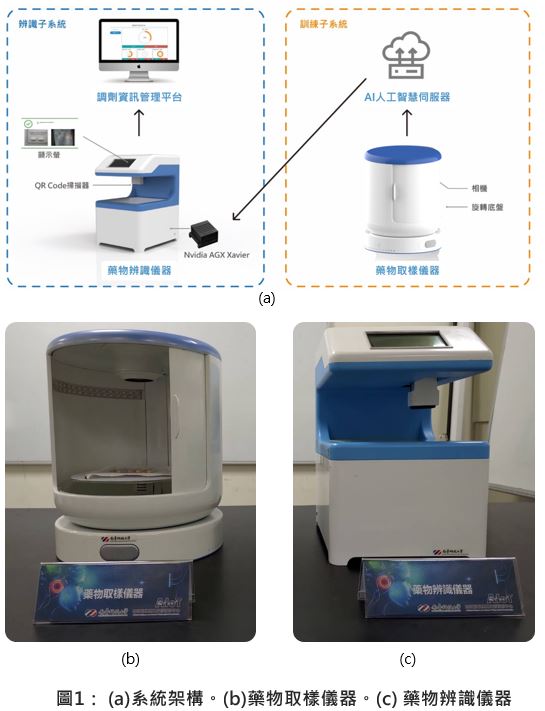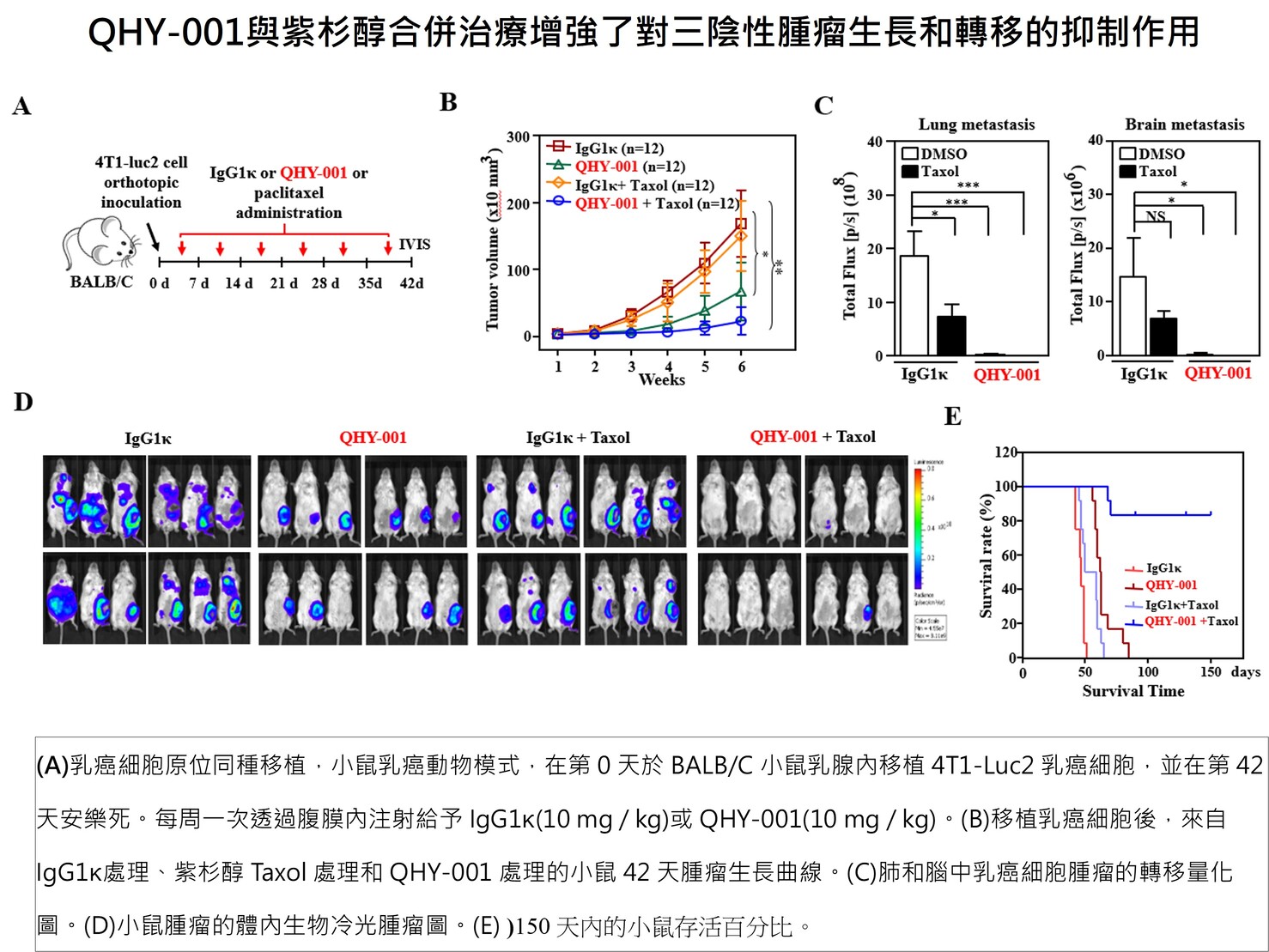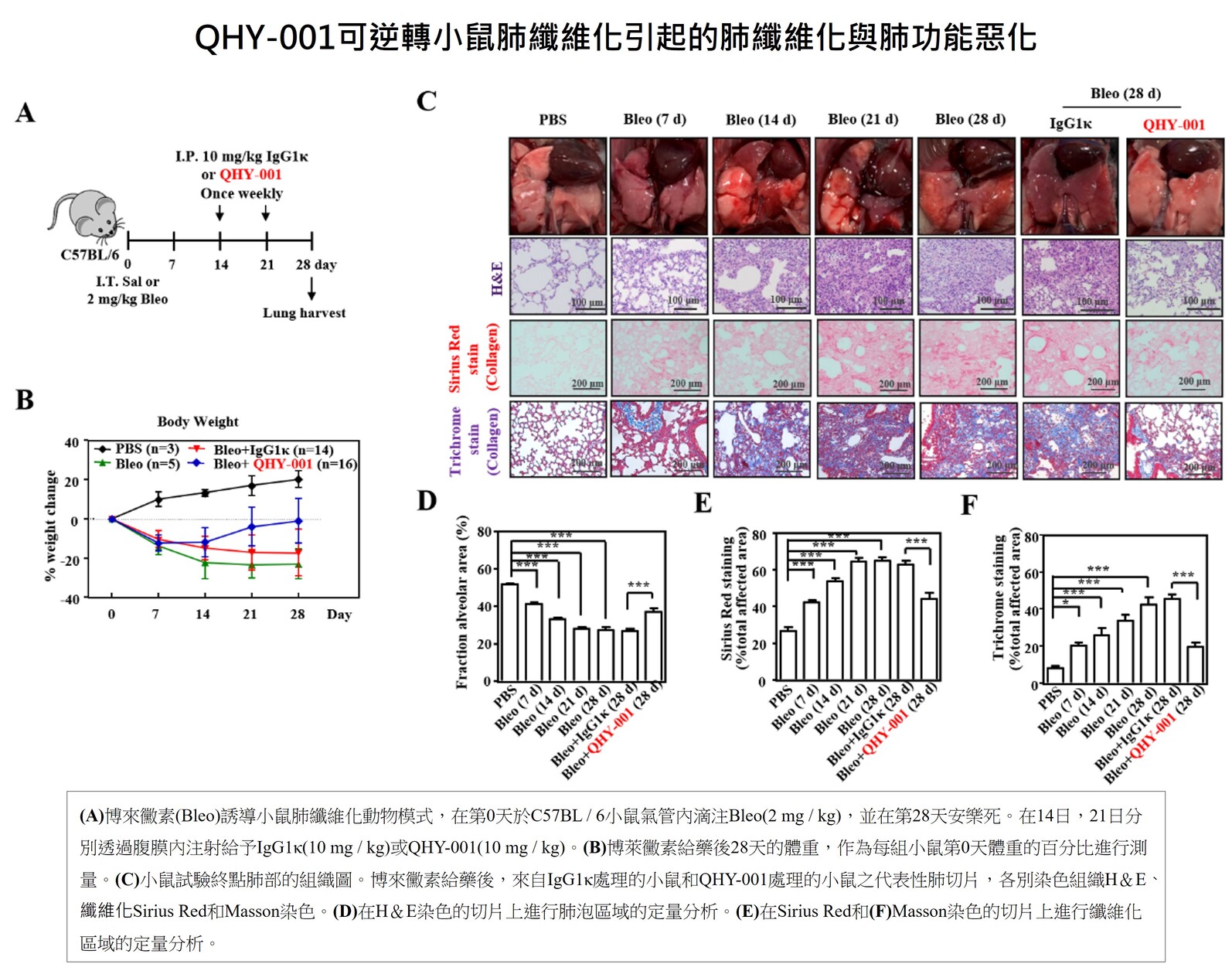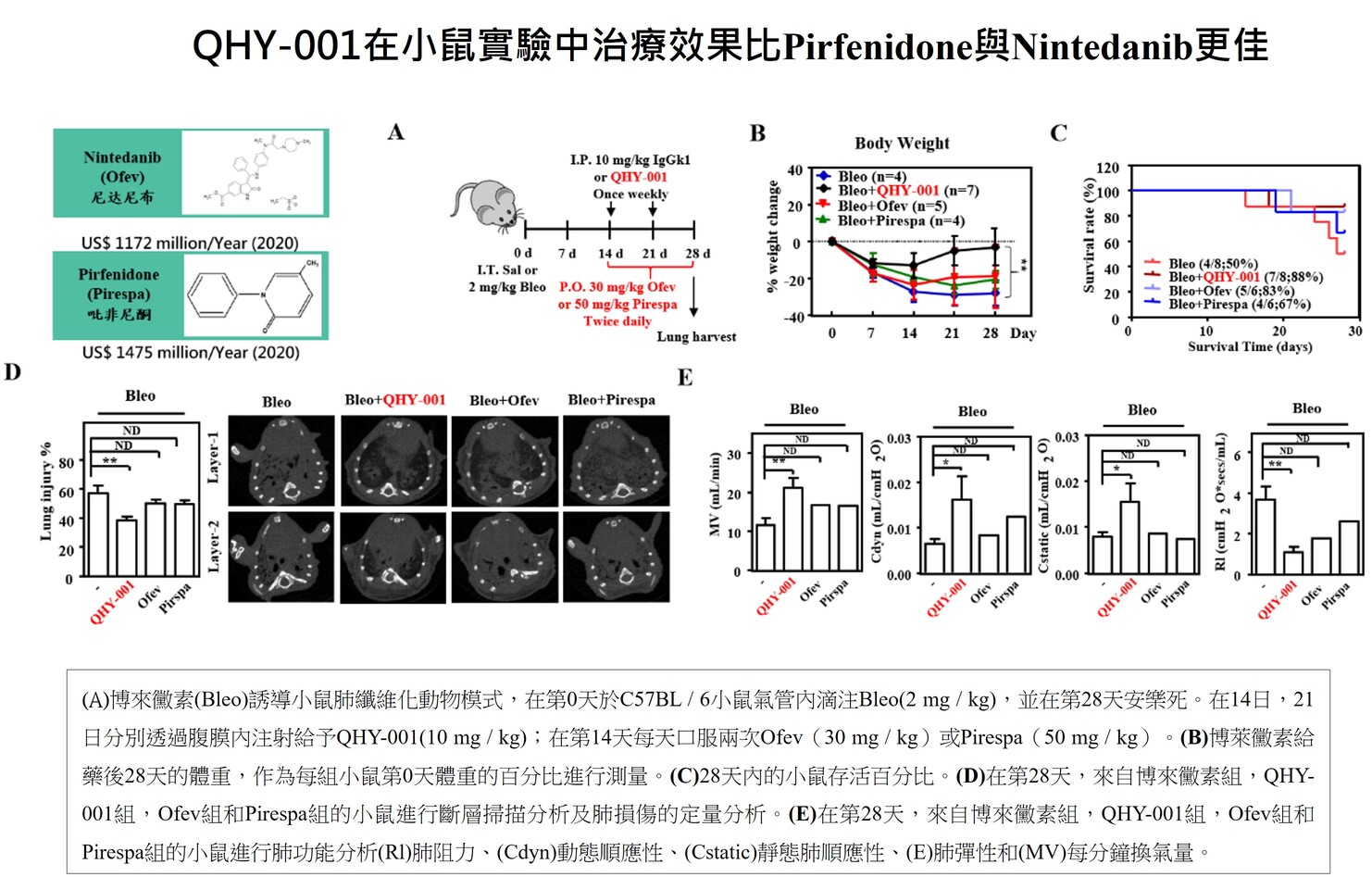| Technical Name | 治療多種癌症與纖維化之首創抗體新藥 | ||
|---|---|---|---|
| Project Operator | National Cheng Kung University | ||
| Project Host | 王育民 | ||
| Summary | Ninety percent of human diseases are related to abnormal inflammation. WJM team has successfully developed a new monoclonal antibody that can inhibit a key inflammation protein. Animal experiments have accumulated more than ten disease modes, including a variety of solid tumors, fibrosis, degenerativecardiovascular diseases. This antibody is qualified as an orphan drug for the treatment of IPF. New coronary pneumonia has greatly increased the demand for pulmonary fibrosis treatment,has also become an important target for mergersacquisitions of global pharmaceutical companies. |
||
| Scientific Breakthrough | This antibody can not only inhibit the growthmetastasis of triple-negative breast cancer more effectively, but also reduce the metastasisrecurrence caused by the inflammation-like effect caused by the use of chemotherapy drugs. In addition, pulmonary fibrosis experiments have also shown the potential to reverse fibrotic tissue, which is not achieved by current drugs. In addition to a variety of cancersfibrosis, key proteins are also involved in other chronic inflammation-related diseases,will become important targets for the development of cross-disease drugs in the future. |
||
| Industrial Applicability | Many cases have shown that patients diagnosed with new coronary pneumonia have fibrosis in the lungs after recovery. The pulmonary fibrosis drug market has reached 20 billion U.S. dollars each year. Major pharmaceutical companies have invested a lot of resources to accelerate the developmentsearch for more effective anti-fibrosis drugs. This antibody is expected to become one of Taiwan’s self-developed drug candidates. It will greatly increase the energy of biopharmaceutical researchdevelopment during the epidemic,lead Taiwan’s biomedical industry to seize the leading position. |
||
| Matching Needs | 天使投資人、策略合作夥伴 |
||
| Keyword | Anti-inflammation tumor microenvironment TNBC metastasis drug resistance chemotherapy pulmonary fibrosis COVID-19 monoclonal antibody reverse fibrosis | ||
- doge0917@gmail.com
other people also saw







